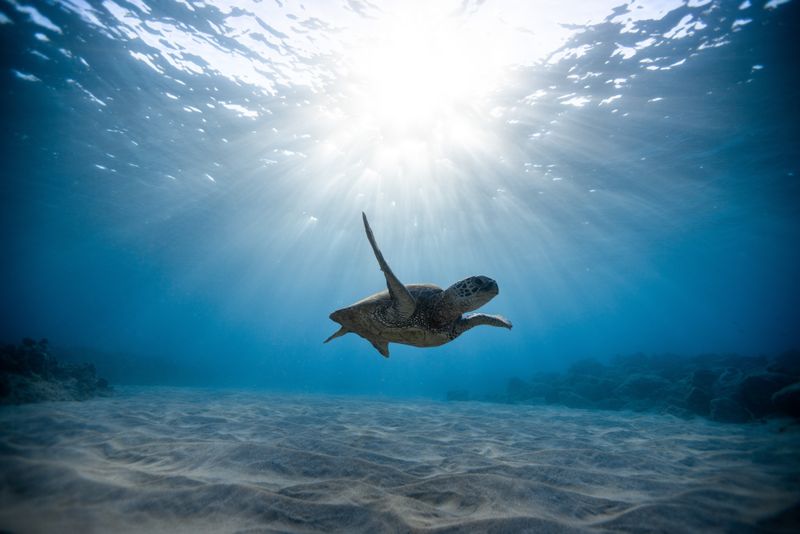Table of Contents
Greenpeace and the Global Ocean Treaty: A Historic Victory for Nature
The Fight for Ocean Protection
Greenpeace, a prominent international environmental organization, has played a crucial role in the long-awaited Global Ocean Treaty. This treaty, aimed at protecting marine biodiversity and establishing marine protected areas, is a significant step towards safeguarding our oceans. After years of campaigning and advocacy, Greenpeace’s efforts have helped shape the treaty and push for the ambitious target of protecting at least 30% of the world’s oceans by 2030.
In 2005, Greenpeace published its first-ever call for a new treaty under the UN Convention on the Law of the Sea. This call highlighted the urgent need to address the destructive activities taking place on the high seas, which were largely unregulated. Greenpeace also spearheaded the call for the 30×30 target, which was eventually adopted by all governments in December 2022. This target, representing a minimum threshold necessary for ocean recovery, was made possible by the millions of people who joined Greenpeace in advocating for ocean protection.
A Long Process Towards a Historic Moment
The Global Ocean Treaty is not only the first legally binding treaty related to the oceans in over 20 years but also the first-ever treaty specifically focused on protecting marine life on the high seas. The process leading up to its adoption has been years in the making.
In 2004, an ad hoc working group was established to study gaps in global ocean governance. This led to the formulation of the “key elements” of the treaty package in 2011. Subsequently, a series of negotiations, known as Intergovernmental Conferences (IGCs), took place between 2018 and 2023 to finalize the treaty text. This arduous process encountered numerous obstacles, demonstrating the challenges of international cooperation and policy-making.
The Urgent Need for Ocean Protection
The oceans are facing a crisis due to centuries of human exploitation and extraction. However, they still hold the potential for recovery if we give them the necessary space and protection. Ocean sanctuaries, covering at least 30% of the oceans, are crucial for the restoration of marine ecosystems and the preservation of delicate habitats such as coral reefs and underwater forests.
This Global Ocean Treaty represents a powerful symbol of prioritizing nature conservation over geopolitical interests. It sets the stage for a global commitment to protect the oceans and their biodiversity. However, the adoption of the treaty is just the beginning. The next crucial step is the ratification process, where governments must sign the treaty into national law, so it can come into force.
The Race to Ratification
For the treaty to enter into force, at least 60 governments need to ratify it. The timeline is tight, as the goal is to achieve ratification by the UN Ocean Conference in 2025. This leaves just five years to use the treaty effectively in protecting 30% of the oceans. Time is of the essence, and the urgent passage of necessary legislation is required to make this ambitious target a reality.
The global community must continue to exert pressure on governments to ensure they fulfill their commitments and swiftly ratify the treaty. Only through international cooperation and collective action can we achieve meaningful ocean conservation. Greenpeace’s call to action for ocean sanctuaries must be echoed by individuals, organizations, and governments worldwide.
Critical Moment for Our Oceans
As governments come together at the United Nations to formally adopt the Global Ocean Treaty, the world is watching. This historic victory for nature should serve as a turning point in our efforts to protect the oceans. However, it should also be seen as a call to action for sustained and determined action.
The oceans are integral to the health of our planet and all life on Earth. They play a crucial role in regulating our climate, providing sustenance to billions of people, and supporting diverse marine ecosystems. By recognizing the importance of ocean sanctuaries and committing to their establishment, governments have shown their willingness to prioritize the protection of our shared natural heritage.
Now is the time for action. Governments must fulfill their promises and enact legislation that allows for the ratification of the treaty. Individuals must continue to support organizations like Greenpeace and advocate for stronger environmental policies. Together, we can ensure the future health and sustainability of our precious oceans. It is a race against time, but one that we cannot afford to lose.

<< photo by Jeremy Bishop >>
The image is for illustrative purposes only and does not depict the actual situation.
You might want to read !
- Saudi Arabia’s Broken Promise: Imminent Execution of Juveniles Highlights Violation of Death Penalty Abolition
- Hong Kong’s Attempt to Ban Protest Song Displays Clear Violation of International Law, a Critical Exploration.
- “The Art of Activism: Greenpeace Installs Monumental Piece to Promote Global Plastic Treaty”
- “UN urged to take action against fossil fuel industry’s interference in Global Plastic Treaty”
- The Urgent Case for a Comprehensive Global Plastics Treaty
- “The Impact of Whale Conservation on the Health of Our Oceans”
- “EU Sets Path Towards Sustainable Trade with ‘Deforestation-Free’ Law Approval”
- Why Protecting River Ecosystems is Crucial for Rhinoceros Conservation
- The Urgent Need for International Efforts to Tackle Pakistan’s Deadly Heatwaves